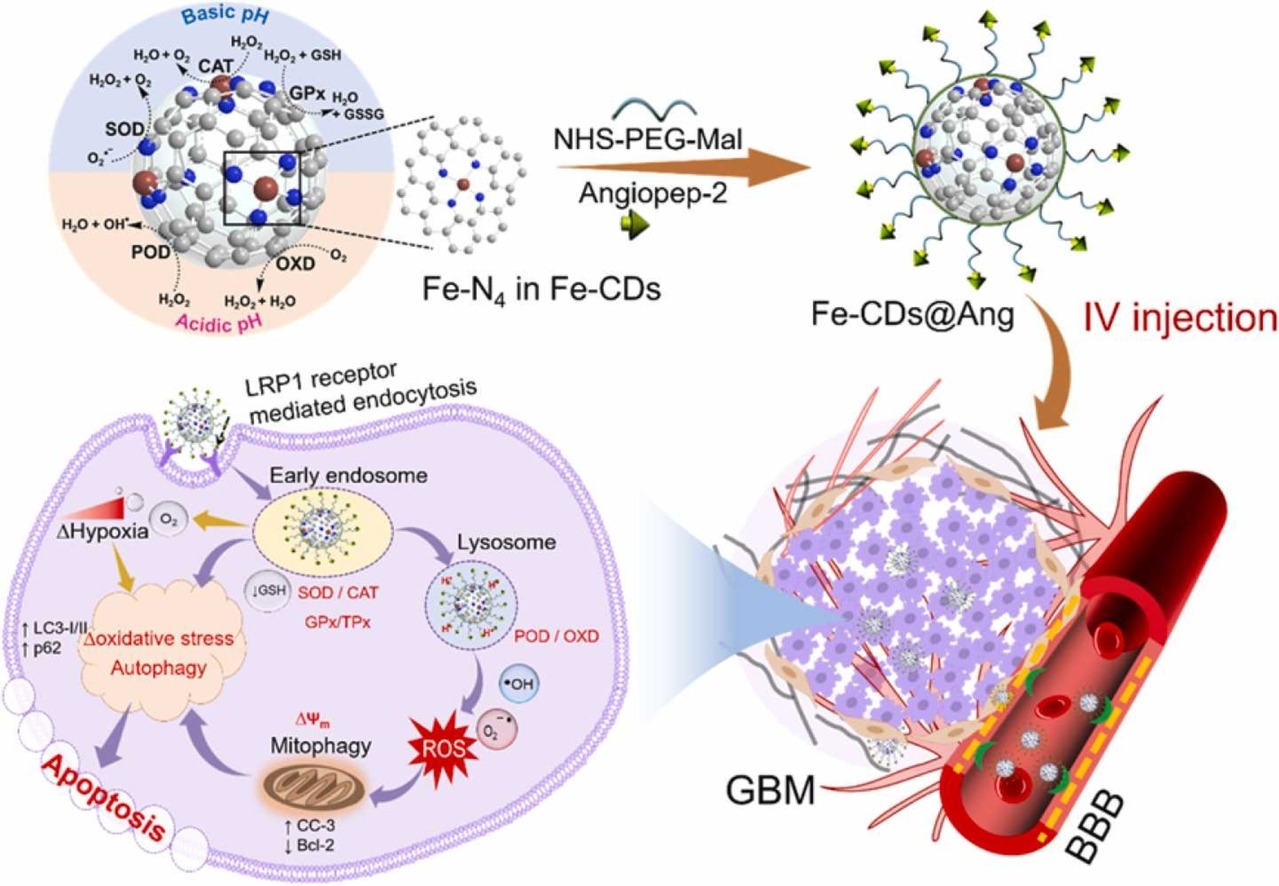Abstract
Glioblastoma (GBM) is a fatal and recurrent brain cancer without any complete prevailing remedy. Here, we explored single-atom nanozyme-mediated catalytic therapy to precisely target drug-resistant GBM via the lysosomal-mediated autophagic cell death pathway. The ultrasmall carbon dots supported iron single-atom nanozyme (Fe-CDs) were rationally designed and developed, exhibiting six naturally occurring enzymes: oxidase, catalase, superoxide dismutase, and the peroxidase family (peroxidase, glutathione peroxidase, and thiol peroxidase). Importantly, Fe-CDs act as a drug-free nanomedicine that modulates the tumor microenvironment via reactive oxygen species regulation and lysosome-mediated autophagy owing to the multiple enzyme-mimic properties. In addition, we introduce BBB permeable and glioma targeting peptides on Fe-CDs via surface modification for selectively GBM targeting in vivo. Our findings suggest that the cascade enzymatic activities of Fe-CDs stimulate autophagy to effectively inhibit tumor growth in drug-resistant GBM mice models. Thus, the new-generation Fe-CDs present great potential to be a robust and versatile remedial nanoplatform with minimal toxicity and high potency for precise drug-resistant GBM therapy.

